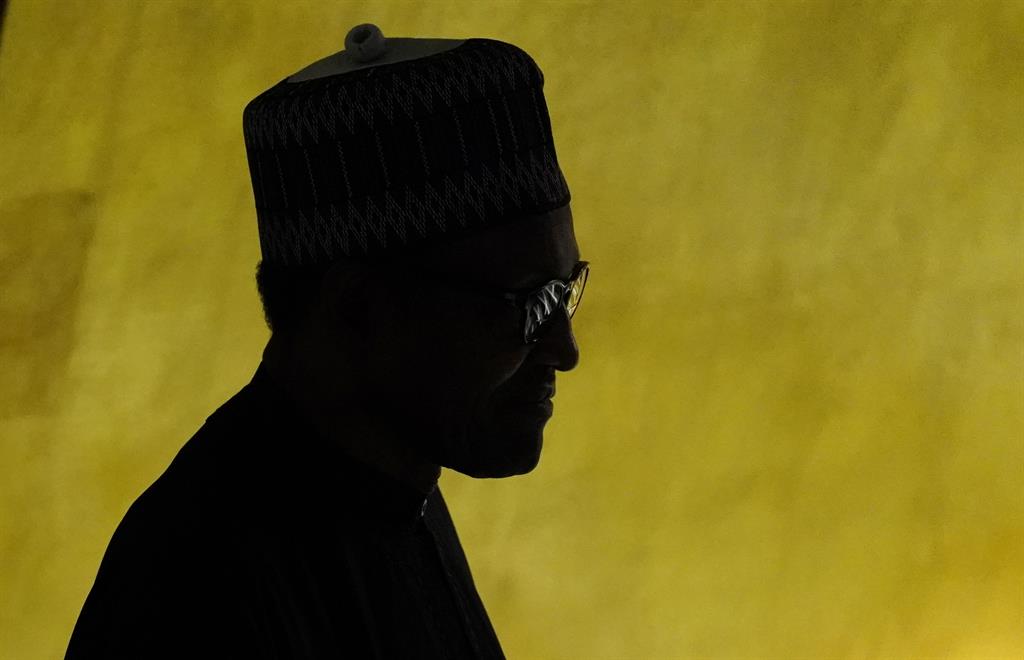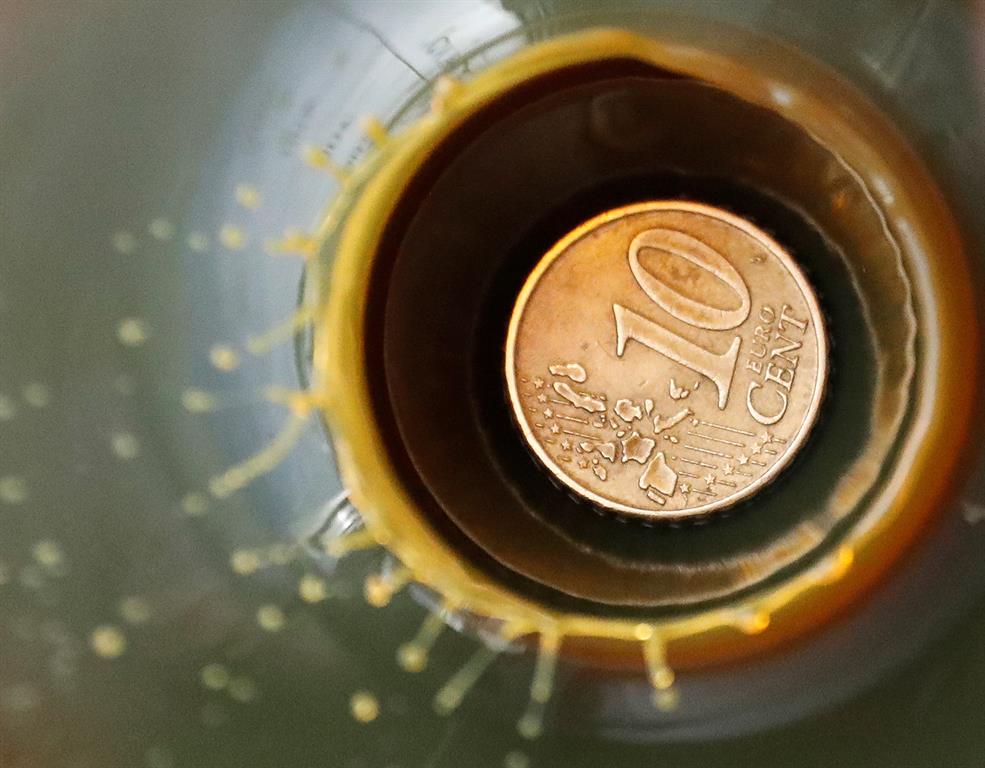Nigeria puts squeeze on oil majors
An amended bill is the latest to target additional cash from offshore oil and comes as the government pursues a record US$34 billion 2020 budget.
Libby George - The Nigerian government has amended a bill that would render billions in planned offshore oil investments unprofitable and cut nearly 30% from potential offshore output, an industry group said.
The measure, which aims to add some US$1.5 billion to government coffers in just two years, is the latest to target additional cash from offshore oil and comes as the government pursues a record US$34 billion 2020 budget.
On Monday, Nigeria's president Muhammadu Buhari said on Twitter: “This afternoon I assented to the bill amending the Deep Offshore (and Inland Basin Production Sharing Contract) Act.”
"Nigeria will now receive its fair, rightful and equitable share of income from our own natural resources for the first time since 2003," he added.
It is not clear whether the measure will take immediate effect or lead to discussions with oil companies to review their agreements, and Buhari's office has estimated the change will bring in at least US$1.5 billion in added revenue annually by 2021.
As oil prices have slid this year, meaning a drop in revenue to the government, Africa's largest oil producer has been steadily increasing pressure on the some of the world's biggest energy companies - Shell, Exxon Mobil, Chevron Eni, Total and CNOOC - who extract most of the crude oil in Nigeria.
Tough fight
Oil company representatives fought aggressively to soften the changes; but after an hours-long closed door meeting with Nigerian lawmakers, they added an extra royalty, an industry source told Reuters, making it even more damaging for companies.
The measure passed through the legislature in a matter of weeks, an unusually quick pace for a country that has had a petroleum industry bill pending for more than a decade.
Majors are already fighting a surprise US$62 billion bill for offshore oil projects that the government delivered early this year.
Industry group Oil Producers Trade Section (OPTS), which represents oil companies that produce 90% of Nigeria's oil and gas, said this proposed law change, and the regulatory uncertainty it will create, could significantly undermine profitability for the projects, including behemoth fields such as Shell-operated Bonga and Total's Egina.
It expects the changes to the law to slash future offshore production by 27% to 2023, cut US$55.5 billion from investment over the lifetime of deepwater projects and remove some US$10.4 billion in potential government revenue by 2030.
"This is not in line with FGN's objective to grow the economy," OPTS said in a detailed analysis of the measure sent to Nigerian lawmakers.
It added that the changes would be "almost equivalent to no new [deepwater] projects being viable."
Slashing investment
Offshore oil projects are among the most expensive, difficult and time-consuming for companies to develop. They have also added significant amounts of much-needed oil output in Nigeria in recent years - with Egina alone adding 200 000 barrels per day (bpd).
Nigeria's deepwater output has grown from nothing at the beginning of the century to 780 000 bpd in 2019, a significant chunk of Nigeria's roughly 2 million bpd of total production.
The law will change the 1993 Deep Offshore and Inland Basin Production Sharing Contract to add two new revenue streams. One is a flat 10% royalty on for all projects over 200 meters deep, and a 7.5% royalty on frontier and inland basins.
The second is a price-based royalty that would kick in when oil prices went above US$35 per barrel and increase as prices rose.
‘Unilateral change’
The law will also require the underlying law to be reviewed every five years. Offshore projects typically require a minimum of 20-year life span in order for the investment to make sense for companies.
OPTS said potential changes to terms in the middle of contracts makes it incredibly difficult, if not impossible, to assess profitability and make investment decisions, advocating for stable terms for the life of each project.
"The proposed unilateral change to current terms would damage investor confidence and make Nigeria's Deepwater and Inland Basin PSC significantly less attractive in the wake of stiffening global competition for investable funds," the OPTS analysis said.
Tax now, or ‘grow the pie’?
It encouraged the government to address all fiscal terms in the long-awaited petroleum industry bill, and to increase revenue by efforts to "grow the pie", rather than heavily tax existing production.
Buhari, in a speech outlining a record budget last month, pressed lawmakers to move quickly to pass a bill to change this law so the contracts would "reflect the current realities and for more revenue to accrue to the government."
Still, oil sources and industry watchers said the short-term rush for cash could ultimately sabotage long-term oil development and revenue.
Shell has already said it will not make a final investment decision in its offshore Bonga SW project until the tax bill dispute was settled.
"Once the real-world impact of this legislation become clear, the government may need to repeal or soft-pedal it or else new offshore projects may evaporate," said Matthew Page, an associate fellow with the Africa Programme at Britain's Chatham House. - Nampa/Reuters/AFP
The measure, which aims to add some US$1.5 billion to government coffers in just two years, is the latest to target additional cash from offshore oil and comes as the government pursues a record US$34 billion 2020 budget.
On Monday, Nigeria's president Muhammadu Buhari said on Twitter: “This afternoon I assented to the bill amending the Deep Offshore (and Inland Basin Production Sharing Contract) Act.”
"Nigeria will now receive its fair, rightful and equitable share of income from our own natural resources for the first time since 2003," he added.
It is not clear whether the measure will take immediate effect or lead to discussions with oil companies to review their agreements, and Buhari's office has estimated the change will bring in at least US$1.5 billion in added revenue annually by 2021.
As oil prices have slid this year, meaning a drop in revenue to the government, Africa's largest oil producer has been steadily increasing pressure on the some of the world's biggest energy companies - Shell, Exxon Mobil, Chevron Eni, Total and CNOOC - who extract most of the crude oil in Nigeria.
Tough fight
Oil company representatives fought aggressively to soften the changes; but after an hours-long closed door meeting with Nigerian lawmakers, they added an extra royalty, an industry source told Reuters, making it even more damaging for companies.
The measure passed through the legislature in a matter of weeks, an unusually quick pace for a country that has had a petroleum industry bill pending for more than a decade.
Majors are already fighting a surprise US$62 billion bill for offshore oil projects that the government delivered early this year.
Industry group Oil Producers Trade Section (OPTS), which represents oil companies that produce 90% of Nigeria's oil and gas, said this proposed law change, and the regulatory uncertainty it will create, could significantly undermine profitability for the projects, including behemoth fields such as Shell-operated Bonga and Total's Egina.
It expects the changes to the law to slash future offshore production by 27% to 2023, cut US$55.5 billion from investment over the lifetime of deepwater projects and remove some US$10.4 billion in potential government revenue by 2030.
"This is not in line with FGN's objective to grow the economy," OPTS said in a detailed analysis of the measure sent to Nigerian lawmakers.
It added that the changes would be "almost equivalent to no new [deepwater] projects being viable."
Slashing investment
Offshore oil projects are among the most expensive, difficult and time-consuming for companies to develop. They have also added significant amounts of much-needed oil output in Nigeria in recent years - with Egina alone adding 200 000 barrels per day (bpd).
Nigeria's deepwater output has grown from nothing at the beginning of the century to 780 000 bpd in 2019, a significant chunk of Nigeria's roughly 2 million bpd of total production.
The law will change the 1993 Deep Offshore and Inland Basin Production Sharing Contract to add two new revenue streams. One is a flat 10% royalty on for all projects over 200 meters deep, and a 7.5% royalty on frontier and inland basins.
The second is a price-based royalty that would kick in when oil prices went above US$35 per barrel and increase as prices rose.
‘Unilateral change’
The law will also require the underlying law to be reviewed every five years. Offshore projects typically require a minimum of 20-year life span in order for the investment to make sense for companies.
OPTS said potential changes to terms in the middle of contracts makes it incredibly difficult, if not impossible, to assess profitability and make investment decisions, advocating for stable terms for the life of each project.
"The proposed unilateral change to current terms would damage investor confidence and make Nigeria's Deepwater and Inland Basin PSC significantly less attractive in the wake of stiffening global competition for investable funds," the OPTS analysis said.
Tax now, or ‘grow the pie’?
It encouraged the government to address all fiscal terms in the long-awaited petroleum industry bill, and to increase revenue by efforts to "grow the pie", rather than heavily tax existing production.
Buhari, in a speech outlining a record budget last month, pressed lawmakers to move quickly to pass a bill to change this law so the contracts would "reflect the current realities and for more revenue to accrue to the government."
Still, oil sources and industry watchers said the short-term rush for cash could ultimately sabotage long-term oil development and revenue.
Shell has already said it will not make a final investment decision in its offshore Bonga SW project until the tax bill dispute was settled.
"Once the real-world impact of this legislation become clear, the government may need to repeal or soft-pedal it or else new offshore projects may evaporate," said Matthew Page, an associate fellow with the Africa Programme at Britain's Chatham House. - Nampa/Reuters/AFP





Kommentaar
Republikein
Geen kommentaar is op hierdie artikel gelaat nie